
Nezu shrine in Bunkyo Tokyo, celebrates the Azalea festival in late April early May.
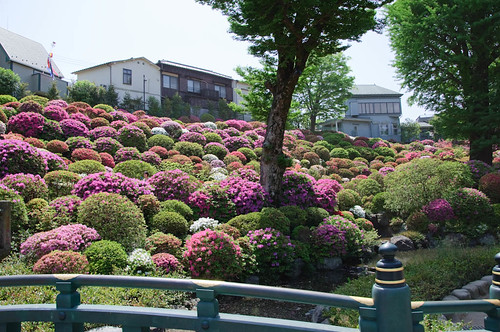

Dates change every year to go with the blooming of the Azaleas; weekends are extremely busy during the festival as the shrine receives a very large number of visitors.
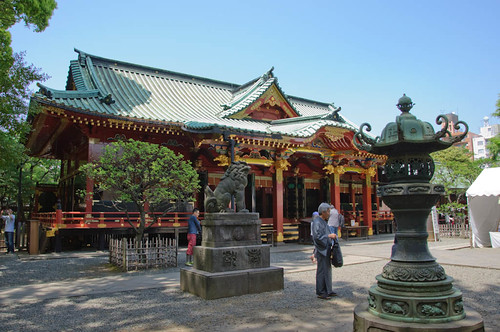


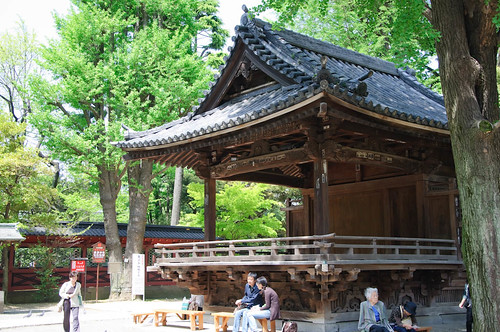
Nezu shrine is said to have been established over 1900 years ago. Tsunayoshi Tokugawa built the structures standing today in 1705, accordingly the main hall, the worship hall, the offering hall and the bronze lanterns have been designated as important cultural properties, being the oldest original constructions in Tokyo.
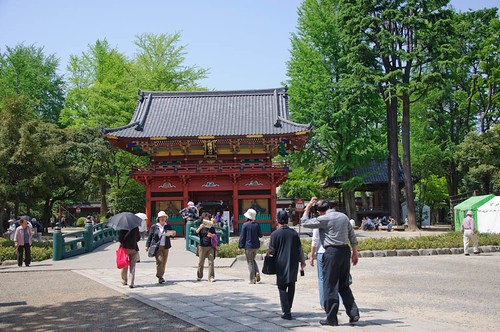
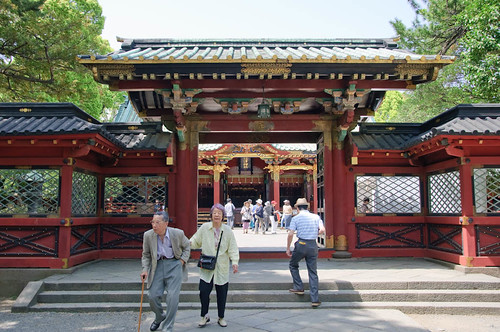

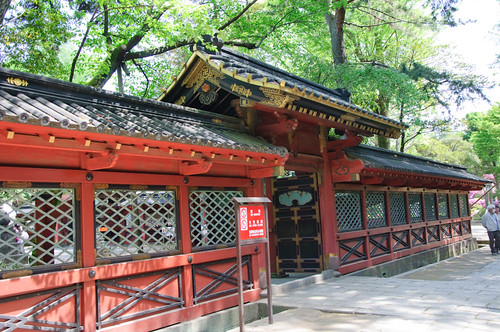
The Roumon (tower gate), the karamon, the west gate and the wall are also designated important cultural properties.
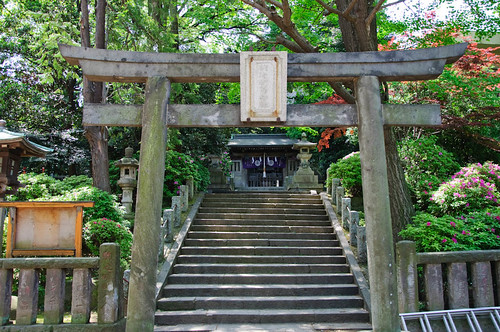
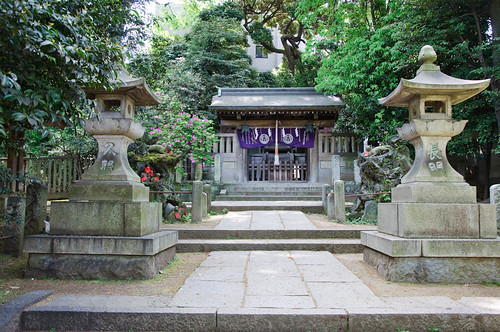

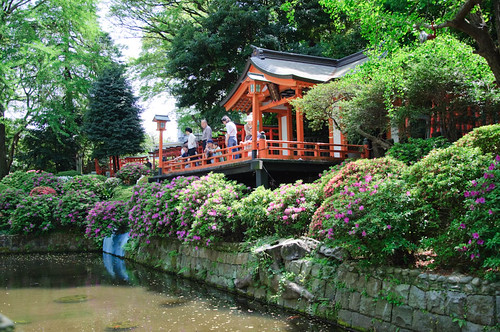
At the same premises, at the west, the Otome inari and the komagome inari are dedicated to the godess of rice inari, with their colorful tori gates.
Español
2 comments:
An interesting shrine... style-wise quite nice... I understand that this shrine was originally "moved" here during this period. Not sure how you really move a shrine, but apparently it was not uncommon.
It's nice to see some of the less well-travelled shrines.
How long do the Azalea's bloom?
Traditional Shrine making is a complicated art. No nails are used Structures are assembled together like puzzle/Lego without using nails, furthermore floors are raised and the foundations aren't very deep. this is to withstand the very common earthquakes. Taking this into account, shouldn't be too difficult to disassemble the shrine and put it back together at the new place, but my guess is that they build a new shrine at the new place when the old one needed renovation.
Azaleas bloom for around a month and as one of the most common flowers in Tokyo, they are everywhere, blooming is almost over now and there only the late bloomers left.
Post a Comment